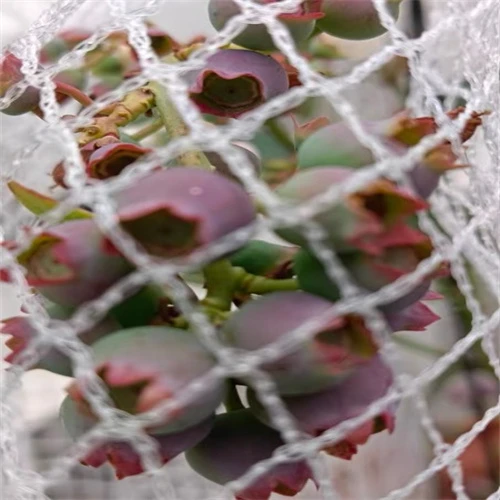-
 Afrikaans
Afrikaans -
 Albanian
Albanian -
 Amharic
Amharic -
 Arabic
Arabic -
 Armenian
Armenian -
 Azerbaijani
Azerbaijani -
 Basque
Basque -
 Belarusian
Belarusian -
 Bengali
Bengali -
 Bosnian
Bosnian -
 Bulgarian
Bulgarian -
 Catalan
Catalan -
 Cebuano
Cebuano -
 China
China -
 Corsican
Corsican -
 Croatian
Croatian -
 Czech
Czech -
 Danish
Danish -
 Dutch
Dutch -
 English
English -
 Esperanto
Esperanto -
 Estonian
Estonian -
 Finnish
Finnish -
 French
French -
 Frisian
Frisian -
 Galician
Galician -
 Georgian
Georgian -
 German
German -
 Greek
Greek -
 Gujarati
Gujarati -
 Haitian Creole
Haitian Creole -
 hausa
hausa -
 hawaiian
hawaiian -
 Hebrew
Hebrew -
 Hindi
Hindi -
 Miao
Miao -
 Hungarian
Hungarian -
 Icelandic
Icelandic -
 igbo
igbo -
 Indonesian
Indonesian -
 irish
irish -
 Italian
Italian -
 Japanese
Japanese -
 Javanese
Javanese -
 Kannada
Kannada -
 kazakh
kazakh -
 Khmer
Khmer -
 Rwandese
Rwandese -
 Korean
Korean -
 Kurdish
Kurdish -
 Kyrgyz
Kyrgyz -
 Lao
Lao -
 Latin
Latin -
 Latvian
Latvian -
 Lithuanian
Lithuanian -
 Luxembourgish
Luxembourgish -
 Macedonian
Macedonian -
 Malgashi
Malgashi -
 Malay
Malay -
 Malayalam
Malayalam -
 Maltese
Maltese -
 Maori
Maori -
 Marathi
Marathi -
 Mongolian
Mongolian -
 Myanmar
Myanmar -
 Nepali
Nepali -
 Norwegian
Norwegian -
 Norwegian
Norwegian -
 Occitan
Occitan -
 Pashto
Pashto -
 Persian
Persian -
 Polish
Polish -
 Portuguese
Portuguese -
 Punjabi
Punjabi -
 Romanian
Romanian -
 Russian
Russian -
 Samoan
Samoan -
 Scottish Gaelic
Scottish Gaelic -
 Serbian
Serbian -
 Sesotho
Sesotho -
 Shona
Shona -
 Sindhi
Sindhi -
 Sinhala
Sinhala -
 Slovak
Slovak -
 Slovenian
Slovenian -
 Somali
Somali -
 Spanish
Spanish -
 Sundanese
Sundanese -
 Swahili
Swahili -
 Swedish
Swedish -
 Tagalog
Tagalog -
 Tajik
Tajik -
 Tamil
Tamil -
 Tatar
Tatar -
 Telugu
Telugu -
 Thai
Thai -
 Turkish
Turkish -
 Turkmen
Turkmen -
 Ukrainian
Ukrainian -
 Urdu
Urdu -
 Uighur
Uighur -
 Uzbek
Uzbek -
 Vietnamese
Vietnamese -
 Welsh
Welsh -
 Bantu
Bantu -
 Yiddish
Yiddish -
 Yoruba
Yoruba -
 Zulu
Zulu
Leading Manufacturers of Quality Chicken Wire Products for Agricultural and Construction Needs
The Role of Chicken Wire Manufacturers in Modern Agriculture and Construction
Chicken wire, also known as hexagonal wire mesh, is a versatile material that has found its place in various industries, particularly in agriculture and construction. As a crucial component for farming operations and building projects, chicken wire manufacturers play an essential role in ensuring the availability of high-quality products that cater to the needs of their consumers. This article delves into the significance of chicken wire, the manufacturing process, and the various applications that underscore its importance.
The Importance of Chicken Wire
Initially designed for poultry farming, chicken wire is more than just a fencing material for keeping chickens contained. Its lightweight and durable properties make it ideal for a myriad of applications, including garden fencing, erosion control, and even artistic projects. The wire's hexagonal shape allows it to provide a secure barrier while still enabling visibility and air circulation. This balance ensures that animals remain safe while allowing for a healthy environment.
In agriculture, chicken wire is critical for protecting crops from pests and larger animals. Farmers often rely on it to create enclosures around gardens, ensuring that unwanted creatures do not destroy their hard work. Additionally, chicken wire serves as a support structure for climbing plants, making it a staple in horticulture. Beyond farms, gardeners use chicken wire to create protective barriers around flower beds, preventing rabbits and other small animals from feasting on tender plants.
The Manufacturing Process
The creation of chicken wire involves several steps, starting with the selection of raw materials. Manufacturers typically use galvanized steel, which offers excellent rust resistance and longevity. The wire is drawn into appropriate gauges and then twisted into the iconic hexagonal shape. This process often employs advanced machinery to ensure precision and consistency in the finished product.
chicken wire manufacturers

Quality control is a crucial aspect of chicken wire manufacturing. Manufacturers need to conduct rigorous testing to ensure that the wire can withstand various environmental factors, including UV exposure, moisture, and physical stress. By adhering to industry standards and regulations, chicken wire manufacturers guarantee that their products will perform effectively in different applications.
Applications in Construction
In the construction industry, chicken wire is not only used for fencing but also for reinforcing structures. It can be incorporated into concrete applications, where it adds tensile strength, preventing cracking and ensuring the longevity of the built structure. Moreover, chicken wire is utilized in constructing temporary barriers at construction sites, helping to maintain safety by restricting access to untrained personnel.
Another interesting application is in the realm of sustainable building practices. Chicken wire can be employed in eco-friendly construction projects as part of natural building techniques, such as straw bale construction. It helps to hold straw bales in place, creating strong, insulating walls while promoting a reduced environmental footprint.
Conclusion
In conclusion, chicken wire manufacturers are integral to multiple sectors, especially agriculture and construction. By producing high-quality chicken wire, they enable farmers to protect their livestock and crops while facilitating innovative building solutions. As demand for sustainable and efficient materials continues to rise, the significance of chicken wire and its manufacturers is likely to grow, showcasing their crucial role in addressing modern challenges faced by agriculture and construction industries alike. Whether it’s in a garden, farm, or building site, chicken wire remains an indispensable component, reinforcing the old adage great things often come in simple packages.
-
Shipping Plastic Bags for Every NeedNewsJul.24,2025
-
Safety Netting: Your Shield in ConstructionNewsJul.24,2025
-
Plastic Mesh Netting for Everyday UseNewsJul.24,2025
-
Nylon Netting for Every UseNewsJul.24,2025
-
Mesh Breeder Box for Fish TanksNewsJul.24,2025
-
Expanded Steel Mesh Offers Durable VersatilityNewsJul.24,2025











